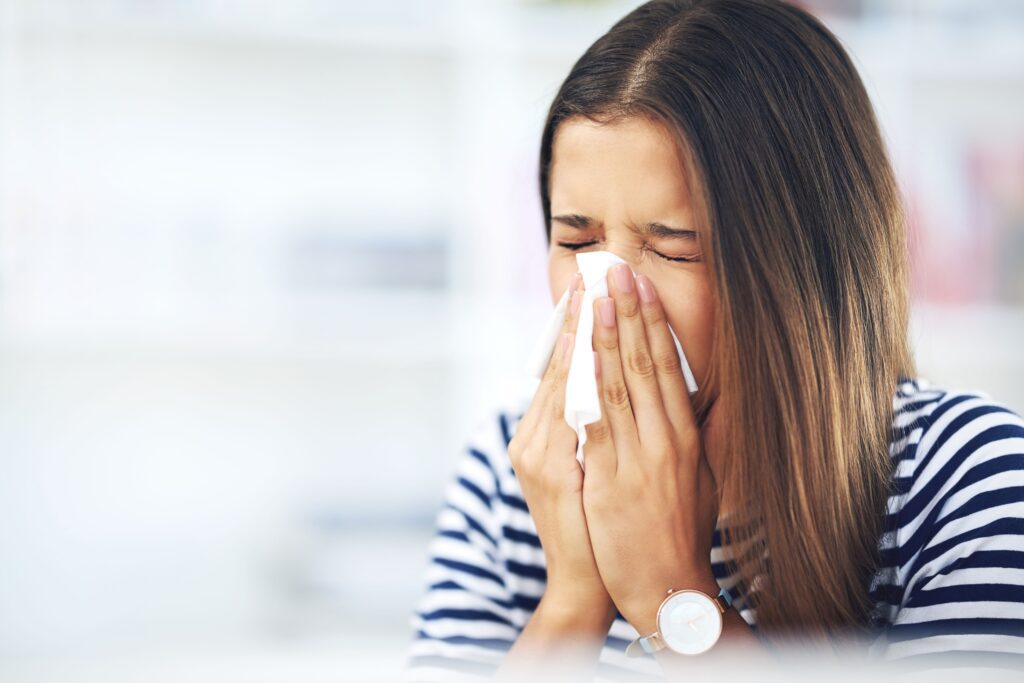
Surviving Spring: A Comprehensive Guide to Managing Seasonal Allergies
As winter bids adieu and spring blossoms forth, the beauty of the season heralds a familiar foe for many: seasonal allergies. In this extensive guide, we’ll delve deep into the realm of seasonal allergies, equipping you with knowledge and strategies to conquer the sneezes, sniffles, and itchy eyes that accompany this time of year. Join us on a journey through the intricacies of spring allergies and discover how to navigate the season with confidence and comfort.
1. Understanding Seasonal Allergies
Spring allergies, or allergic rhinitis, occur when the immune system reacts to allergens present in the environment. Pollen from trees, grasses, and weeds is a primary culprit during spring, triggering symptoms such as sneezing, congestion, itchy eyes, and nasal discomfort. Understanding the triggers and mechanisms behind seasonal allergies is crucial for effective management.
2. Identifying Common Allergens
Pollen grains are ubiquitous in the air during spring, particularly from trees like oak, birch, and cedar, as well as grasses and weeds like ragweed. Mold spores, another common allergen, thrive in damp environments and can exacerbate symptoms, especially after rain showers. Recognizing these common allergens is the first step in mitigating their impact on your health.
3. Minimizing Exposure to Allergens
Limiting exposure to allergens is key to managing seasonal allergies. Check pollen forecasts regularly and try to stay indoors during peak pollen hours, typically in the morning and on windy days. Keep windows closed and use air conditioning with HEPA filters to purify indoor air. Regularly clean and vacuum your home to reduce indoor allergens like dust mites and pet dander.
4. Pollen Avoidance Strategies
When venturing outdoors, take precautions to minimize pollen exposure. Wear sunglasses to protect your eyes and a hat to shield your hair and face. Change clothes and shower after spending time outdoors to remove pollen from your skin and hair. Consider using a nasal saline rinse to flush out allergens and soothe nasal passages.
5. Over-the-Counter and Prescription Treatments
Over-the-counter antihistamines, nasal sprays, and decongestants can provide relief from allergy symptoms. Antihistamines block the action of histamine, reducing sneezing and itching, while nasal sprays alleviate congestion and inflammation. For severe allergies, consult a healthcare provider for prescription-strength medications or allergy shots.
6. Natural Remedies and Supplements
Explore natural remedies and supplements that may help alleviate allergy symptoms. Quercetin, a flavonoid found in certain foods like apples and onions, has anti-inflammatory properties that may reduce allergy symptoms. Butterbur extract and stinging nettle supplements are also thought to have antihistamine effects. However, consult with a healthcare professional before trying any new supplements.
7. Allergy-Friendly Lifestyle Practices
Adopting lifestyle practices that support allergy management can make a significant difference in symptom severity. Avoid smoking and exposure to secondhand smoke, as cigarette smoke can worsen allergy symptoms. Practice stress-reduction techniques like yoga, meditation, or deep breathing exercises, as stress can exacerbate allergy symptoms.
8. Monitoring Pollen Counts and Allergy Triggers
Stay informed about pollen counts in your area by using pollen tracking apps or websites. Adjust your outdoor activities accordingly on days when pollen levels are high. Be mindful of other allergy triggers, such as pet dander, dust, and certain foods, and take steps to minimize exposure to these allergens.
9. Building Immune Resilience
Support your immune system with a healthy lifestyle that includes regular exercise, balanced nutrition, and adequate sleep. Eating a diet rich in fruits, vegetables, and immune-boosting nutrients like vitamin C and zinc can help strengthen your body’s defenses against allergens. Consider incorporating probiotics into your diet to support gut health, which plays a role in immune function.
10. Seeking Professional Guidance
If seasonal allergies significantly impact your quality of life despite self-care measures and over-the-counter treatments, seek guidance from a healthcare professional. An allergist can perform allergy testing to identify specific triggers and develop a personalized treatment plan tailored to your needs.
Conclusion
Navigating seasonal allergies can be challenging, but armed with knowledge and proactive strategies, you can effectively manage symptoms and enjoy the season to the fullest. By understanding seasonal allergy triggers, minimizing exposure to allergens, and implementing appropriate treatments and lifestyle practices, you can take control of your health and thrive during the spring months. Remember, you don’t have to suffer in silence—seek professional guidance and support to find relief from seasonal allergies and reclaim your well-being.
Feel free to visit United Providers of Health for health related blogs! Also, take some time to answer a quick survey about Social Determinants of Health!
